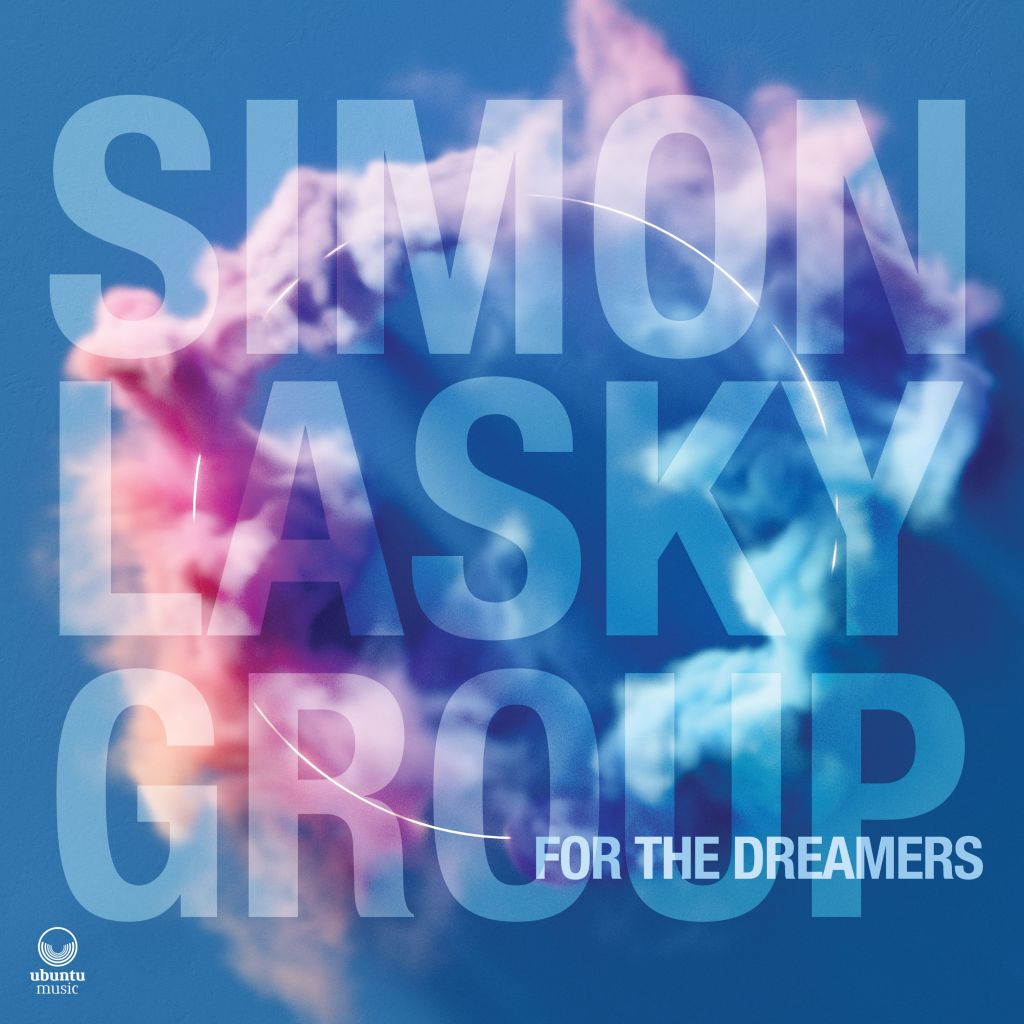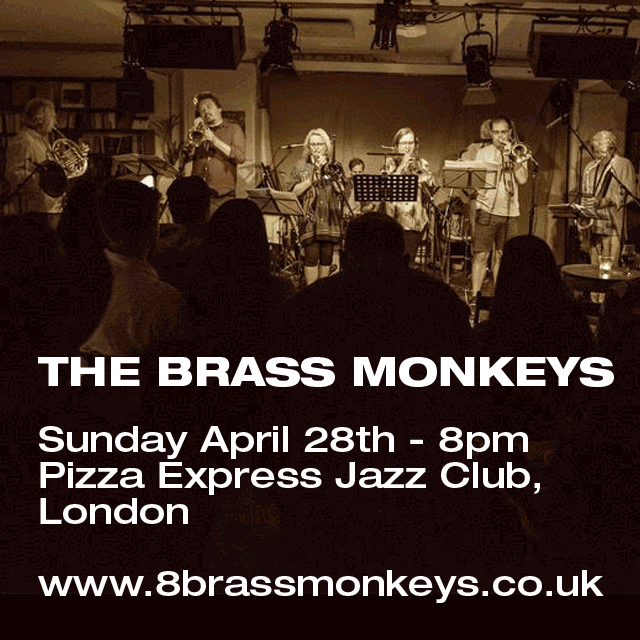Duke Ellington – Live At The Berlin Jazz Festival 1969 -1973
(The Lost Recordings TLR2204041. Album review by Len Weinreich)
By their own admission, record companies are a clumsy, scatty and careless bunch. And the evidence lies with released album titles informing us that, at some time or other, recorded performances by jazz musicians as illustrious as Miles Davis, Sarah Vaughan, John Coltrane, Charles Mingus, Art Blakey, Dizzy Gillespie, Count Basie, Oscar Peterson and Stan Getz, even entire Blue Note sessions, have been misplaced, overlooked or just plain lost. And, hey presto, suddenly found. Because, now (pause for elaborate fanfare), stashed away on a cobwebby shelf in Berlin, some intrepid archivist has recently discovered two lost performances by a bandleader named Edward Kennedy ‘Duke’ Ellington.

Where should we lay the blame for this gross negligence? The Cold War? Or do we point an accusatory finger at mislabelled tape containers? Slipshod filing systems? Sloppy office staff? Or does the guilt reside with record label marketing departments who have learned that appending the description ‘lost’ to an album title exerts a powerful magnetic attraction on obsessive collectors? You’re left to draw your own conclusions.
The dozen tracks (13 are listed, but one of them is nothing more than a few seconds of spoken introduction by tap-dancer Baby Laurence) on this album might have been genuinely lost/mislaid/ignored because they don’t appear in my Lord discography. Their origin is two discrete sessions, both recorded live at the Berlin Jazz Festival: the first in 1969 with the full band and, the second, in 1973, a few months before Duke’s death. Issues abound. Perversely, the later session appears first. Furthermore, on what appears to be a prestige presentation (restrained graphics, Duke’s swash autograph reproduced in gilt, textured CD jewel case, sleeve notes in three languages), the curation is dismal. The skimpy personnel lists are incomplete, omitting dancer Baby Laurence, who has an extended tap solo and organist Wild Bill Davis, who features on Satin Doll, as well as the entire celebrated trombone section, names perhaps obscured by ancient grime, dense cobwebs and a partially consumed pretzel.
But let’s discuss the music, taking a sensible chronological approach. A woody skirl from Russell Procope’s clarinet conjures a latter-day jungle impression, with Duke’s fevered imagining of La Plus Belle Africaine, a tutti blast from the band giving way to an arco bass feature for Victor Gaskin before the distinctive burry rumble of Harry Carney’s incomparable baritone saxophone, all signed off with a sly Ducal keyboard coda. Vernon Duke and Ira Gershwin’s I Can’t Get Started carries all the signs of a hastily assembled ad lib performance: a solo trumpet accompanied by Duke and the rhythm section, the rest of the band remaining silent. Annoyingly, the trumpet player is unidentified, even unrecognised, by the gushy, but uninformative, sleeve notes. Doesn’t sound like Cootie Williams. Nor high-note specialist Cat Anderson. Don’t remember Mercer, Ellington’s son, who was in the section at the time, ever taking solos. Possibly either Rolf Erikson or Benny Bailey, both of whom blew with the band at times during the 1969 European tour. Will we ever know? The puzzle might occupy Ducal discographers for years.
The Maestro introduces Juan Tizol’s Caravan with brio, but this early example of jazz exotica receivesshort shrift: a single chorus studded with tantalising dissonances before segueing into the perpetually eerie clarinet/bass clarinet/wah-wah trombone voicing of Mood Indigo. El Gato is Duke’s jazz paso doble, a stirring set-piece for Cat Anderson’s rat-trap trumpet embouchure producing vertigo-inducing acrobatics far above the massed brass choir and Rufus Jones’ atmospheric tom toms. Duke devotes his last-ever popular hit, Satin Doll, to the billowing Hammond B3 of Wild Bill Davis (a newcomer to the organisation) with encouraging whoops of vocal support and further coloratura squeaks from Anderson’s trumpet. Finally, Meditation is precisely that, a pensive solo journey across the piano keyboard, as heard on Duke’s Sacred Concerts’ programmes.
By the 1973 session, Duke had six months left to live. Yet, even fronting a much-diminished band, his verve and enthusiasm sounded undimmed. The opening track is a bluesy trio Piano Improvisation No. 1, a contemplative sketch from the Master before he guides us into more familiar terrain, a jaunty waltz-time version of the orchestra’s theme, Billy Strayhorn’s Take the A-Train, handing solo duties to trumpeter ‘Money’ Johnson. Paul Gonsalves on tenor and Harry Carney on baritone steadfastly attempt the daunting task of representing a full Ellington reed section. On Pitter Panther Patter, bassist Joe Benjamin duets deftly with the piano-player, recalling the ground-breaking performance 33 years earlier of his renowned predecessor, Jimmy Blanton, daddy of the modern jazz string bass. Duke’s Sophisticated Lady is a sonorous circular breathing party piece for Harry Carney, first colossus of the baritone saxophone. The aural landscape transforms as we’re introduced to ‘Jazz Tap Percussion’, a five-minute blues for two feet focussed on the sound and rhythm of taps rather than visual movement, nimbly performed by Baby Laurence, a dancing star in Duke’s Sacred Concerts. It certainly rocked the West Berlin audience.
As a Duke aficionado for many decades (on meeting my wife Frances, the Great Man murmured: “four kisses. One on each cheek”), I’m delighted that someone uncovered the dusty tape boxes stashed at the back of a forgotten shelf, lost no more. My verdict? A patchy production perhaps, but every surviving fragment of Ellington has a value beyond rubies.
Track listing:
Not yet a subscriber of our Wednesday Breakfast Headlines?
Join the mailing list for a weekly roundup of Jazz News.
- Piano Improvisation No. 1; Take The ‘A’ Train; Pitter Panther Patter; Sophisticated Lady; Introduction By Baby Laurence; Tap Dance
- La Plus Belle Africaine; El Gato; I Can’t Get Started; Caravan; Mood Indigo; Satin Doll; Meditation.
- Tracks 1 – 6: Duke Ellington, piano; Joe Benjamin, bass; Harold ‘Money’ Johnson, trumpet; Paul Gonsalves, tenor saxophone; Harry Carney, baritone saxophone; Baby Laurence, tap dancer; Quintem ‘Rocky’ White Jr., drums, recorded West Berlin, Germany, 02.11.73.
Tracks 7 – 13: Duke Ellington Orchestra led by Duke Ellington, piano and including Cat Anderson, Cootie Williams and Mercer Ellington, trumpets; Lawrence Brown, trombone; Harold Ashby, Johnny Hodges, Russell Procope, Paul Gonsalves and Harry Carney, reeds; Wild Bill Davis, organ; Victor Gaskin, bass; Rufus Jones, drums, recorded West Berlin, Germany, 08.11.69.
LINK: Purchase Duke Ellington – Live At The Berlin Jazz Festival 1969 -1973
Categories: Album reviews










More comprehensive – though not necessarily completely complete – personnel listings can be found via: https://www.berlinerfestspiele.de/de/chronicle/jazzfest/index/?finder%5B_req%5D=1&finder%5Bfulltext%5D=&finder%5Bmusik%5D=duke+ellington&finder%5Btitle%5D=&finder%5Byear%5D=&search=Suche
Also listed there is a Ducal full-band performance from 1971. Let’s hope those tapes get found too…
Anytime you have questions about Duke’s activities, the source to consult is David Palmquist’s website called “The Duke, Where and When.” It’s an exhaustive listing of the acitivies of Duke and his band on a day-by-day basis and can be found at tdwaw.ca . Also, there is an Ellington discography that can be found at http://www.ellingtonia.com. That said, the full personnel for the 1969 date is: Cootie Williams, Cat Anderson, Nelson Williams, Mercer Ellington, Benny Bailey(t); Lawrence Brown(tb); Chuck Connors(btb); Russell Procope(cl,as); Norris Turney(fl,cl,as,ts); Johnny Hodges(as); Harold Ashby(ts,cl); Paul Gonsalves(ts); Harry Carney(cl,bcl,as,bar); Duke Ellington(p); Wild Bill Davis(o); Victor Gaskin(sb); Rufus Jones(d); Toney Watkins(v). (BTW, the trumpet soloist on “I Can’t Get Started” is Benny Bailey.”)
I am very proud and happy to have witnessed one of the last concerts of the master Duke Ellington in Berlin 1973!
I would like to make a few corrections to the liner notes and the review: The concert began exactly in the order as reproduced here – up to the fourth track. After Sophisticated Lady, the full orchestra entered the stage, with Tony Watkins intoning Come Sunday with a great deal of pathos. This was not at all well received by the Berlin audience at the time, who booed loudly and clapped rhythmically against the beat. Duke Ellington was so annoyed that he stopped the concert at this point.
After a break, Baby Laurence, who was supposed to be accompanied by the Duke Ellington Trio, was scheduled to perform. But the Duke was still so annoyed that he refused – George Wein then played the piano in his place.
In those days it was customary for the concerts to take place twice, at 7pm and 11pm. At the second concert (without Baby Laurence) the complete Duke Ellington Orchestra (without Tony Watkins) played an inspiring concert.
Yes, this second concert was also granted to me. An unforgettable moment!